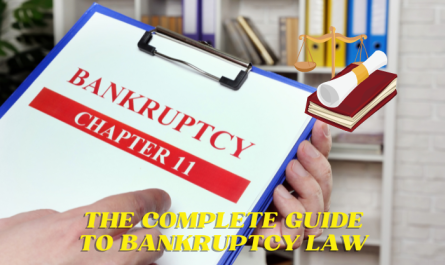Divorce, a challenging and often emotionally fraught process, can be overwhelming for anyone going through it. Ensuring that you have the right family law attorney by your side is critical to navigating these complex waters successfully. A divorce attorney isn’t just a legal representative; they are your guide, advocate, and protector during one of the most stressful times in your life.
Understanding the Role of a Family Law Attorney
Family law attorneys specialize in cases involving divorce, child custody, alimony, property division, and other related matters. Their expertise extends beyond simply understanding the law—they also need to be skilled negotiators and empathetic counselors who understand the emotional toll of divorce. A good attorney provides both legal guidance and emotional support, helping clients to make informed decisions that will affect their lives for years to come.
Why Expertise Matters in Divorce Cases
Not all lawyers are equipped to handle the complexities of a divorce case. Family law in particular is a specialized field that requires a deep understanding of various legal areas, including property law, child custody statutes, and spousal support regulations. An experienced family law attorney will know the nuances of your state’s divorce laws and can provide you with the best possible outcome, whether through negotiation or litigation.
Consider this: If you’re dealing with significant assets or complex child custody issues, a lawyer with specialized expertise is indispensable. They will be familiar with the intricacies of dividing marital property and know how to handle high-stakes custody battles.
Qualities to Look for in a Family Law Attorney
When searching for the right family law attorney, certain qualities stand out as essential. First and foremost, your attorney should have a track record of successfully handling cases similar to yours. Look for an attorney who is experienced, well-respected in the legal community, and who comes highly recommended by previous clients.
Another critical quality is communication. Your lawyer should be someone who listens carefully, understands your concerns, and keeps you informed throughout the process. Divorce proceedings can be long and complicated, so having an attorney who communicates clearly and regularly is invaluable.
The Importance of Initial Consultations
Before hiring a family law attorney, schedule consultations with a few different candidates. This meeting is your opportunity to assess whether the attorney is a good fit for you. It’s important to ask questions about their experience, their approach to divorce cases, and how they would handle your specific situation.
During the consultation, pay attention to how the attorney interacts with you. Do they seem knowledgeable and confident? Are they empathetic to your situation? Trust your instincts—if you feel comfortable and confident in their abilities, it’s a good sign that you’ve found the right attorney.
Cost Considerations and Budgeting for Legal Fees
Legal fees can be a significant concern when hiring a family law attorney. Divorce proceedings often involve various expenses, including filing fees, court costs, and attorney fees. While it’s tempting to choose the least expensive option, remember that you often get what you pay for.
It’s important to discuss the fee structure upfront. Some attorneys charge by the hour, while others may offer a flat fee for specific services. Ask about any additional costs that may arise and how they will be billed. An experienced attorney will be transparent about their fees and help you understand what to expect financially.
Handling Sensitive Issues During Divorce
Divorce cases frequently involve sensitive issues such as child custody, spousal support, and property division. An experienced family law attorney will help you navigate these difficult topics with care and tact. They will work to protect your interests while also ensuring that the proceedings remain as amicable as possible.
For instance, if you’re concerned about the well-being of your children during the divorce, your attorney can help you establish a custody arrangement that prioritizes their needs. They will also assist you in negotiating fair terms for spousal support and division of assets, ensuring that you receive your fair share.
When to Consider Mediation vs. Litigation
In some cases, divorce mediation may be a more appropriate option than litigation. Mediation involves working with a neutral third party to negotiate the terms of the divorce. This process can be less adversarial and more cost-effective than going to court. However, mediation isn’t suitable for every situation, especially if there are significant power imbalances or a history of abuse.
Your family law attorney can help you determine whether mediation or litigation is the best course of action for your case. They will explain the pros and cons of each approach and guide you in making a decision that aligns with your goals and circumstances.
The Impact of Divorce on Children
One of the most challenging aspects of divorce is its impact on children. A family law attorney who is experienced in child custody cases can help you navigate this delicate issue with sensitivity. They will advocate for a custody arrangement that serves the best interests of the children while minimizing the emotional impact of the divorce.
A skilled attorney will also help you address any concerns related to child support, visitation rights, and the overall well-being of your children. They will ensure that your children’s needs are prioritized throughout the legal process.
Conclusion
Hiring the right family law attorney is crucial when navigating divorce proceedings. The attorney you choose will play a significant role in the outcome of your case and your ability to move forward with your life. By taking the time to find a knowledgeable, empathetic, and experienced attorney, you can ensure that your rights are protected and that the divorce process is as smooth and stress-free as possible.
FAQs
How do I know if I need a family law attorney for my divorce?
If your divorce involves complicated issues such as child custody, significant assets, or spousal support, it’s highly advisable to hire a family law attorney. They will provide the expertise needed to handle these complex matters.
What should I ask during an initial consultation with a divorce attorney?
Ask about their experience with cases similar to yours, their approach to divorce proceedings, their fee structure, and how they plan to handle your specific situation. This will help you assess whether they are a good fit for your needs.
Can I handle my divorce without an attorney?
While it’s possible to handle a divorce without an attorney, it’s not recommended, especially if the divorce is contested or involves complicated issues. An attorney will ensure that your rights are protected and that the process is handled correctly.
How much does a family law attorney cost?
The cost of a family law attorney varies depending on their experience, the complexity of the case, and the fee structure. It’s important to discuss fees upfront and understand all potential costs involved.
What is the difference between mediation and litigation in a divorce?
Mediation involves negotiating the terms of the divorce with the help of a neutral third party, while litigation involves going to court to resolve disputes. Mediation is often less adversarial and more cost-effective but may not be suitable for all cases.
How can I protect my children during a divorce?
A family law attorney with experience in child custody cases can help you establish a custody arrangement that prioritizes your children’s well-being. They will also assist in addressing any issues related to child support and visitation rights.




I am not really good with English but I line up this rattling easy to understand.
e6kcfm